Avivah Zornberg
Human Becoming, Between Biblical Lines
You probably know the outline of the Exodus story and its main characters: Moses, the Pharaoh, the burning bush, the plagues, the parting of the sea. And, in another realm of the power of story, the words “let my people go” and the arc of liberation from slavery have inspired people in crisis and catharsis across time and cultures. Call it “myth” if you will — as the Greek Statesman Solon said, myth is not something that never happened. It’s something that happens over and over and over again. Avivah Zornberg walks us through the Exodus story that is relived in the Jewish Passover and resonates through Easter. She is a modern-day master of midrash — the ancient Jewish art of inquiry for discovering the deepest of meaning in and between the biblical lines. What can look simple on the surface, as she reveals, is a cargo of hidden stories that tell the messy, strange, redemptive truth of us as we are and life as it is. Krista and Avivah Zornberg had this lovely, intimate conversation in the early days of this show, in 2005.
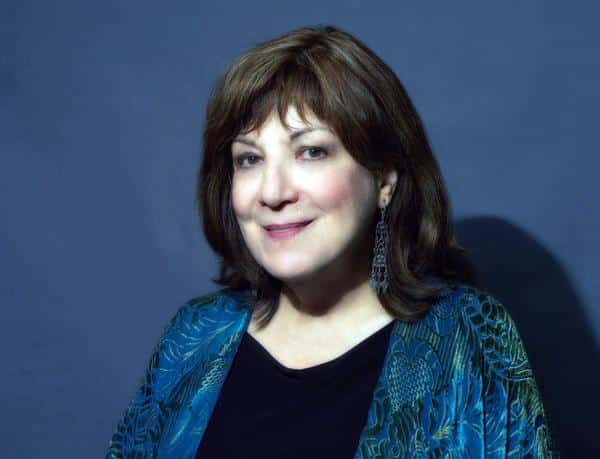
Image by Joan Roth, © All Rights Reserved.
Guest
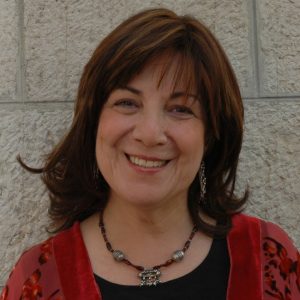
Avivah Zornberg is a scholar of the Torah and a modern-day master of midrash. She lives in Israel but grew up in Scotland, the daughter and granddaughter of East European rabbis. And before she taught the Bible, she taught English literature. She is the author of many books, including The Particulars of Rapture: Reflections on Exodus, The Beginning of Desire: Reflections on Genesis, Bewilderments: Reflections on the Book of Numbers, and most recently, The Hidden Order of Intimacy: Reflections on the Book of Leviticus.
Transcript
Transcription by Heather Wang
Krista Tippett, host: You probably know the outlines of the Exodus story, or the main characters — Moses, the pharaoh, the burning bush, the plagues, the parting of the sea — and, in another realm of the power of story, the words “let my people go” and the arc of liberation from slavery, which has inspired people in crisis and catharsis, across time and cultures. Call it myth, if you will. I like the definition of the Greek statesman Solon, that myth is not something which never happened, but something that happens over and over and over again.
My guest this hour, Avivah Zornberg, walks us through the Exodus story that is relived in the Jewish Passover and resonates through Easter. She is a modern-day master of midrash, the ancient Jewish art of inquiry for discovering the deepest of meanings in and between the biblical lines. What can look simple on the surface, as she reveals, is a “cargo of hidden stories” that tell the messy, strange, redemptive truth of us as we are and life as it is.
I’m Krista Tippett, and this is On Being.
[music: “Seven League Boots” by Zoë Keating]
Exodus is the second book of the Torah, the Hebrew Bible, the Christian Old Testament. As it opens, the ancient Israelites have become slaves in the land of Egypt, where they once were favored guests. A new pharaoh has come to power, who orders midwives to kill the Israelites’ male babies at birth. But the midwives don’t comply. Pharaoh’s own daughter takes pity on a boy who is placed in a basket and sent down the Nile by his terrified mother. That boy is Moses. So he grows up a prince. But he becomes a rebel and an outcast, who finally leads his people out of slavery. Avivah Zornberg lives in Israel but grew up in Scotland, the daughter and granddaughter of East European rabbis. And before she taught the Bible, she taught English literature. We had this lovely, intimate conversation in the early days of this show, in 2005.
The first thing I wanted to ask you, before we actually get into the story, is I noticed that you were not always a teacher of religion. And I wondered if you grew up reading the text with this midrashic approach, or is this something that you learned as an adult?
Avivah Zornberg: That’s interesting. My first education in Bible was with my father. I used to learn with him, every day. And he certainly was very imbued with this midrashic approach, which is in a way a very traditional approach. He was a rabbi; and I think it was also a question of personal predilection — that that’s what he liked to do. So in a way, it’s part of my basic sense of what Torah is.
Tippett: Midrash is so creative and fascinating, and it’s — I think for people who don’t know that tradition, it’s almost surprising to hear that in fact, this very creative way of looking at fundamental texts is also a traditional way of looking at foundational texts.
So if I asked you to just start telling the Exodus story the way that you would want to tell it to someone — I mean, taking the text, obviously, as our jumping off point — how would you start that? And let’s just kind of walk through it.
Zornberg: Well, I think I would start with the Hebrew name of the book, which is Sh’mot, which means “names.” And the book starts with the names of the 12 sons of Jacob who went down to Egypt; and after we hear their names, basically names disappear from the story, and you have a sense of the people becoming largely anonymous. Even the heroes of the story are relatively anonymous. And I think that’s significant. I think what happens — and this is, again, it’s a traditional possible reading of the story — what happens to the Israelites in Egypt is that they gradually lose their distinctness, their individuality; they assimilate, but it’s not just that they assimilate to the culture, but that they lose their differences, one from the other.
And what mirrors that in the external world is a new policy in Egypt to reduce what had once been an honored-guest people to the condition of slavery. The description of how that happens I think suggests that it happens gradually — perhaps the country wouldn’t have been willing to accept it, if it had been an overnight, draconian decision — and gradually, things get worse and worse, till the point where there are decrees to throw baby boys in the river so that there should be no future at all for the Israelite nation. And the reason for this remains rather mysterious. Why does the Egyptian king — it seems that there’s a new king who arises over Egypt, who has forgotten Joseph and the way in which he saved the Egyptian empire, at one time, from famine. And this new king, for some reason, decides that this guest nation are a threat and wants to suppress them.
Tippett: He seems to be concerned partly, or at least from what the text says, just about their numbers, that somehow they are becoming this overwhelming population.
Zornberg: They are becoming overwhelmingly many, yes. There are these multiple expressions of proliferation.
Tippett: So there is this very antagonistic relationship that is building already, very early in Exodus, between the pharaoh and the Israelites. And then it’s very interesting to me that it’s the pharaoh’s daughter who actually enters, then, as a major character and takes the story to its next stage.
Zornberg: Yes, that she actually has the courage to save what she knows to be a Hebrew baby of the Hebrew nation, in spite of her father’s policy — so basically, she is defying her father. And that is an extremely — symbolically, it’s a very provocative act. He is not only her king, but her father. In a sense, she disposes of his fatherly power. In midrashic tradition she’s given the name Batya, which means “daughter of God,” as if to say that she chose God for a father, rather than God’s antagonist, who is Pharaoh.
Tippett: And talk to me about Moses in this book, in this story, in this narrative. I think, from the very beginning, this is a very complicated character. It’s never just any kind of fairytale hero, Moses.
Zornberg: Yes, well, I think one of the significant aspects of Moses’s identity is the fact that he belongs to two nations at once, that he has a kind of double identity. He is nursed by his mother, but only on hire to the Egyptian princess. So it’s not exactly a natural and unequivocal way of coming into the world. And then he’s raised in Pharaoh’s palace as a prince, as basically Pharaoh’s grandson, the son of his daughter.
And it’s with that kind of very complex background that he goes out one day and notices, for the first time fully, the suffering of his brothers and identifies them as his brothers. So that’s a very significant moment. We’re told he “grew up” — “vayigdal” — as if there are stages of maturing. There comes a certain moment where things open up, and he begins to realize how much these people are suffering and that they are, in fact, his brothers, and the next part of the story tells how he intervenes when an Egyptian is beating up one of his brothers.
Tippett: Because he does then kill the Egyptian.
Zornberg: He actually kills, yes. And that again — there’s a question, there’s a moral question that hangs over that: is that a justified thing to have done? I think most of the midrashic sources, most of the commentaries, will say it is justified in these circumstances, but there are always the few who raise a question about it, so that from the beginning, as you say, he is not a simple character.
Tippett: And I think, I mean, that is something that I value very much in the Hebrew Bible in general: that even the heroic, the icons, are fully human in every way, and full of passion, and flawed. I think Moses is in a kind of tradition there, isn’t he?
Zornberg: Very much so. And in the story of Moses, I think almost every event that he’s involved in is subject to complex interpretation, because nothing is straightforward.
[Music: “Ya Ribon” by Sunita & Vida]
Tippett: I’m Krista Tippett, and this is On Being, today exploring the biblical Exodus story with the Scottish-Israeli master of midrash, Avivah Zornberg.
It’s in the second chapter of Exodus that the young Moses commits a murder. He comes upon an Egyptian beating an Israelite. He kills that Egyptian man when no one is looking, and buries the body in the sand. In fear of being discovered, he flees, marrying and living in exile for years. But news reaches him of the deteriorating state of his people. And while tending his father-in-law’s flock in the wilderness one day, he encounters the mysterious “burning bush.” It’s from within this bush that God says to Moses: “Remove your sandals from your feet, for the place on which you stand is holy ground.’”
[Music: “Ya Ribon” by Sunita & Vida]
Take me to how you read that whole story of the burning bush, and everything that you can read in that in the Hebrew, and what you know from midrashic tradition. I wonder if you’d just sort of open that up for us, all the — some layers of meaning that it has for you.
Zornberg: Well, it begins with — it’s in Chapter 3, and it begins with Moses turning aside to see this wonder, which is the bush that is burning in fire, but not consumed. And so that first moment of turning aside from your straight path receives attention, in the midrashic tradition, that it’s a certain quality of the spirit that allows him to move away from the straight and narrow, as it were, from his own concerns, and to simply to notice an anomaly in the world and to look for meaning in it.
God engages him in dialogue at that point, and basically tells him that the time has come for redemption and that he will descend now and save the people, and Moses will be the intermediary between God and the people and, also, between God and Pharaoh. And I think the most striking thing in the narrative — and it’s quite a long, drawn-out narrative — is that Moses consistently refuses to take on the mission.
Tippett: [laughs] Right; well, and he says, “I’m not worthy.”
Zornberg: “I’m not worthy,” and “They’re not going to believe me”; and whatever God says, he basically repudiates. It’s the most extraordinary first meeting between God and a human being. It’s not just that he’s too modest to take on the role, he’s skeptical about everything that God says. It’s really almost what you would call chutzpah. [laughs] It’s just, how does one talk to God like that?
And it’s interesting that in the — again, in the critiques that you find in the midrashic tradition, he’s not criticized so much for cheek against God as for slandering the people, for being dubious about the people’s capacity to believe, to allow themselves to be redeemed. He apparently doesn’t think very much of the people. Are they worthy of redemption?
In the end, after a lot of to and fro between God and Moses — the midrash says it takes seven days, actually; this is not something you would necessarily see from reading the text — a whole week, there’s this kind of resistance, until in the end, Moses says: Well, send by the hand of anyone you want to send by, so long as it’s not me. And at this point God gets angry, the text says, and says: Well, all right. We’ll involve Aaron with you. Your brother Aaron will go with you.
But the detail of God being angry with Moses I think is very significant, because it seems — and this is what I would suggest — it seems that Moses, in a very intense way, is representing the problem that God faces in trying to redeem the people. It’s not only a problem with Pharaoh. It’s not only the persecutor. It’s a problem with the people and with Moses, that there is a kind of resistance to God’s redemption, which is really, as I understand it, it’s something that can only really be understood in psychological terms: there’s an unwillingness to open oneself up to an alternative reality.
For Moses, it means that he can’t speak. That’s part of his protest. There’s something wrong with his speech. Exactly how one is to understand it —
Tippett: “Slow of speech and slow of tongue,” in one translation.
Zornberg: Yes. “Heavy,” the word he uses: “heavy” — “kaved peh” — “heavy mouth.”
But the interesting thing is that that word, “heavy,” is the word that the Torah text uses to describe Pharaoh’s heart.
Tippett: Right. It’s that same word, is it?
Zornberg: It’s the same word. There are several words used of Pharaoh’s heart, as his heart is constantly hardened in the course of the 10 plagues. But one of them is this word “kaved,” “heavy,” which means, really, somehow resistant, impervious, closed off. And it seems to me that can’t be by accident, that you have the same word used.
Tippett: That echo.
Zornberg: Yes. It seems to me that Moses’s sense of himself is — it’s a very deep sense of not being able to open himself to the word of God, to such an extent that he is willing to forgo the opportunity to redeem the people, because he is simply not the right person for this. The most extraordinary image he uses about his speech capacity is when he says he is “aral s’fatayim,” which literally means that he has uncircumcised lips. And he says it twice.
Tippett: What does that mean? What does that mean? I mean, when it gets translated into English it just doesn’t make any sense.
Zornberg: Yes, it is odd. It’s as if an operation needs to be performed on him, as if he is a newborn baby, as his whole people are newborn babies; an operation needs to be performed, which is called circumcision, so as to open up the possibility of healthy communication with the world. There’s a kind of connection here between language and sexuality, which I find fascinating. Both have to do with the possibility of communicating.
Tippett: And relationship.
Zornberg: Relationship, yes. Yes. And Moses is very sensitive to the problem that he has and that he senses that the people also have, so that the whole situation as I understand it, as the story begins, is not a simple one of a cruel, persecuting Pharaoh and poor, helpless victims. It’s poor, helpless victims who will need in some way to arouse within themselves the capacity to be redeemed; that is, to open themselves to relationship, to communication.
I’d like to suggest that the whole story really is about the need for the people to be more than an object that has to be [laughs] yanked out of Egypt, but for the people to become — to acquire the kind of life and openness and communicability that makes them want to emerge from that place of death, which is Egypt.
Tippett: And let’s talk about the pharaoh himself, that for such a long time, as you say, he hardens his own heart, and God brings punishment, plagues, which Moses sort of — I guess he announces, doesn’t he, the frogs and lice and locusts and pestilence. But it’s only after a number of those and after the people get boils, the people of Egypt, that then suddenly the text says that “God hardened Pharaoh’s heart.” And I don’t know, maybe you could tell me if the Hebrew gives more nuance to that. But what is that saying there about the nature of Pharaoh, or the oppressor, if that’s what he stands for, and also the nature of this God who is rescuing Israel? Talk to me about that part of the narrative.
Zornberg: Well, it’s really quite a theological problem, actually, which the midrash pays a lot of attention to. And that is that if God hardens Pharaoh’s heart, then obviously, Pharaoh is not responsible anymore for his intransigence. Why should he be punished? It’s God who’s interfering with his vital organs. And the classic direction to answer it has to do with reaching a point of no return; that one can make oneself obdurate and closed to all appeal from the outside world to such a point that, in fact, it’s as if autonomy, the human autonomy, ceases to act altogether. One no longer has the power to backtrack. And from that point onwards I think it’s a kind of figure of speech, then, to say that God hardens his heart.
Tippett: So, say a person makes so many wrong choices, or choices which are harmful to others, that at some point they seem not — no longer to be in control; that they will continue to make those kinds of choices?
Zornberg: There seems to be no longer any free will. It makes me think of Macbeth, who can’t — after a certain point, he wonders at himself, why couldn’t he answer “amen” to the guard calling out some blessing in his sleep? Why couldn’t he do the thing that one would have thought any sensitive person would do? He’s gone beyond a point of no return. He can’t use religious language any longer. And I think with Pharaoh there is the sense that — repeatedly, it’s not just that he hardens his heart, but what that means in terms of relationships is that he simply doesn’t hear. He doesn’t hear what Moses is saying, he doesn’t hear what God is saying. There’s clearly an intention here: he makes himself as someone who can’t hear.
And that means that, actually, he doesn’t even have to say no. This is something I find very striking, actually, that he actually — not very often does he outright refuse to let the people go. He basically sits there impassively and doesn’t listen, so that —
Tippett: And is insensitive to their plight and to their pleas.
Zornberg: Yes. He’s insensitive, perhaps by nature, and by nature of his role — I think it has to do with the symbolic role of a pharaoh, the sphinxlike being who cannot be swayed in any way, who is completely cryptic, who doesn’t have to make any effort to come towards the world. And in fact, I think the breakdown of Pharaoh happens at the end of the story, at the end of the 10 plagues, when he actually begins to speak, when he actually drives them out of Egypt, where he cracks, where he gets angry. That’s the first time you see him actually expressing himself.
Tippett: And now, that passage, that is quite remarkable. And I was struck by that as I read this. Is that where he says to Moses: You won’t see me again, or if you …?
Zornberg: Yes. He threatens them, and Moses, in a rather sinister repetition, says: You’re quite right, I’ll never see your face again. In other words, he takes the reins. He doesn’t simply submit to Pharaoh refusing to give audience to him ever after, but he takes the reins, and he says: Right. I will never see your face again.
And then, of course, the irony is that Pharaoh comes out, on the night of the death of the first born, Pharaoh comes out crying in the streets for Moses and Aaron to lead the people out. And basically, he drives them out of Egypt. Rather than yielding, he basically expels them from the country.
Tippett: This language and this imagery of seeing is also strikingly — there are many echoes and many uses of that word — that God “sees” the suffering of the Israelites — early on. And then I think it runs throughout the text. And then again, Pharaoh says: If you look on me you will die, or you will never see me again. Tell me about that word in this narrative. Is there something going on with that image?
Zornberg: I think it’s a key word in the narrative, yes. One of the important first uses is where Moses goes out and sees the pain of his brothers. So that’s a kind of seeing; it’s an empathic seeing. And when God says, at the burning bush, that “I have really seen” — “ra’oh ra’iti” — it’s an emphatic, double use of the word: “I’ve really seen the pain of the people, and I’ve heard their cry.”
And it’s at that point where, again, there’s a sense as if on God’s level as well, in his dimension, a barrier has been removed, and what God is now sensitive to is pain. So to be able to see pain, I think, is a very important dimension of what makes redemption possible — even seeing one’s own pain. Without an awareness of how wrong things are, nothing will ever change. So I think that is — that’s an extremely transformative moment.
Tippett: Let’s talk about, also, the very mysterious name of God when Moses encounters God in the burning bush. He says: “Who should I tell them I saw?” And the name that comes back, now the way it’s often translated in English, is: “I am who I am.” I’ve also heard it translated: “I am becoming who I am becoming.” How do you read what is said? And say it for me in Hebrew, as well, if you would?
Zornberg: It’s “Ehyeh asher ehyeh,” and literally, it just means “I will be who I will be.” And I think there’s just no getting around it, some of these translations are just mistranslations.
Tippett: Right. And they don’t help, do they? [laughs]
Zornberg: They really don’t, because actually what God is saying — God is being evasive. God is saying: I’m not giving you a handle. You want a handle of some kind to hold on to, to say, now I’ve got him. That’s a name. And God is not willing to allow himself to become in any way fetishized. And instead he answers: I am the very principle of becoming, of allowing the possible to happen.
[Music: “Cube” by Hauschka]
Tippett: After a short break, more with Avivah Zornberg.
[Music: “Cube” by Hauschka]
I’m Krista Tippett, and this is On Being. Today we are revisiting an early, classic On Being episode, walking through the Exodus story that is at the heart of the Jewish Passover and resonates through the season of Easter, and has inspired human beings in crisis and catharsis, across cultures and time. My guest, Avivah Zornberg, inhabits the ancient Jewish practice of midrash, an art of reading between the lines of sacred text and uncovering intellectual, spiritual, and sensual layers of meaning. So Moses does eventually part the Red Sea and lead the Israelites out of Egypt, out of slavery. But neither Moses nor the pharaoh nor the oppressed Israelites or even God are as they seem on the surface.
Do you ever talk about the story in this way and have people experience it as extremely fanciful and so far from what they know that they don’t even recognize it?
Zornberg: Well, I don’t know everything that people think when they’re listening, but usually when I’m teaching, I teach on the basis of texts. So we have the texts in front of us, and I think at the least, one can see how the ideas — what I am making of what the midrash makes of the sort of layers going on here. At least the process becomes very transparent. We can see how I got there.
Tippett: And exciting, I think; dynamic.
Zornberg: I think so. And it speaks to people, because it’s about our lives. It’s about what’s important and frustrating in our lives.
Tippett: You said — there’s another line in your book about Exodus. You said, “‘What really happened in Egypt?’ becomes a less important question than ‘How best to tell the story? Where to begin? What in the master story speaks to one and therefore makes one speak?’”
Zornberg: Yes. The whole purpose of — it’s one of the extraordinary recursive references in the story. Over and over again, God says to Moses, Moses says to the people: All this is happening so that you shall tell the story. It’s so upside-down, you might say. Since it’s happened, all right, tell the story. Make sure people remember it.
But that’s not the point. It’s not telling the story so as to remember what happened. It happened so as to be the stimulus for a meaningful story, and the stories will develop and change through time. And perhaps in the end, or along the way, you might find yourself telling a better story than what is actually written in the text — so long as there is some connection. So that what you have, for instance, on the Seder night, on Passover, is basically the commandment to tell the story of the Exodus, which doesn’t mean reading the Bible. It means — it isn’t just opening up the Bible and reading. It’s on the basis of this, what’s called the Haggadah, the storytelling book, which has a text.
Tippett: Kind of the order of service.
Zornberg: There is a fixed text, but it’s supposed to be just a kind of opener for the proliferation of more ideas and more attempts to tell the story in a way that will come closer to what can really affect us.
Tippett: We haven’t really gotten to the part of the story which is especially — which is the focus of the Passover commemoration, which is, in fact, the moment after that last plague, when — well, you tell that part of the story, where the term “Passover” even comes from, that last experience of the Israelites under Pharaoh’s yoke.
Zornberg: You mean the death of the firstborn? That God passes over the Israelite houses, as the firstborn in the Egyptian houses are dying. It’s actually rather a terrible —
Tippett: Yes, it is terrible.
Zornberg: One can just imagine the sounds, the crying. And I think there is really a feeling of pressure at that moment. This is not an ecstatic moment. This is a moment — the word that’s used in the Hebrew text, here and in later retellings of the story in Deuteronomy, is “chipazon.” “Chipazon” means “panic haste.” And you should eat the paschal offering, the sacrifice that the Israelites were supposed to eat on that night: “you shall eat it in haste,” which is always a strange commandment — an instruction. Ahead of time, you should prepare to eat it in haste.
It’s not the tempo. It’s the — the people are being told ahead of time that the way in which you will experience this will be pressured. There’ll be a sense of pressure. The Egyptians will be rushing you out of Egypt. You will feel pressure in yourselves to get out as fast as you can while the going is good, but most of all, what’s called the haste of God himself: a sense of history, a sense of the redemption as something that God is making happen rather faster than people can really assimilate it. Things are happening very fast at that moment, and people are almost not capable of registering what is really going on, as one often is not, at critical moments of experience or cataclysmic moments.
Tippett: Right, and this is a cataclysmic moment. I mean, this is a moment at which people are dying, in many of the houses.
Zornberg: And they really are not sure — people are not sure, themselves, what their fate is going to be. I think that kind of fear is with the people a long way into the journey. It’s clear that they don’t stop being afraid of Egypt, even as they approach the Red Sea. They expect — and they look around, and there, of course, there’s Egypt following them.
Tippett: Right, and I mean, again, in the story, of course, the Egyptians go through this horrible experience, but then it says, one final time, that God hardens — I believe it says that God hardens Pharaoh’s heart one more time so that they don’t just let the Israelites go. They follow — they pursue them.
Zornberg: It’s madness.
Tippett: What is the midrash about the drama and the violence of those final scenes before the liberation, which is so celebrated and treasured?
Zornberg: Yes, well, there is one very striking midrash that tries to account for the Egyptian madness, really, in running after them, actually in pursuing them after they have basically thrown them out of the country. They can’t tolerate the presence of this people, this troublemaking people any longer, and nevertheless, they change their minds and run after them. And of course, this is all in the persona of Pharaoh. He is Egypt. He says, “What is this we have done?” in letting them go. It’s as if he now thinks letting them go was a crazy idea.
And the midrash puts it very provocatively and says something like this: that Pharaoh feels that as long as he had the Israelites in his power and God was sending him messages — it’s interesting euphemism for the plagues — that somehow he had some kind of very dramatic, intense relationship with God. He had a feeling that God needed him, that he was important. But now that the people are gone and life has gone back to normal, life is actually quite boring.
That sounds very trivial, but there is a sense that Pharaoh has strangely enjoyed being in the eye of the storm. And that also, I think, psychologically, has a certain —
Tippett: We know, I mean, there are world leaders like that. That’s a familiar kind of figure from history, isn’t it?
Zornberg: Yes. Yes. The worst thing is not being in the limelight, is not being right there where it’s all happening, even if you’re suffering.
That’s the mentality, of course, that leads to destruction. It’s almost like a trance. One doesn’t want to be out of that magic area in which one is being bombarded by God. And they go, and they, some willfully, basically throw themselves into the sea. And I think there is a strong sense of insanity about that last move. All right, the sea has opened up, but who in his right mind would trust that? And then there is that terrible descriptions of how the army, with all the cavalry, of how they are simply tossed in the waves and die. It’s a very graphic description.
I think the song of praise that the Israelites sing, after it’s all over, it seems, if one looks closely at the text, I think one can find room for understanding a midrashic view of this which suggests that they sing not at the end, when they’re safe, but actually while they’re still in the middle of the sea, and that this song is some words of expression — not just of jubilation, but of the human situation of being in the middle, of being full of fear; the sense of life and death in the balance; seeing what can happen to human beings all around them and that there but for the grace of God, go I. It’s a song that human beings sing in the face of mortality.
Tippett: This is a long passage, which is known as “Moses’s Song,” I believe, is that right?
Zornberg: Yes. He leads it.
Tippett: After they have a — or yeah, you’re right. The text — it’s not clear, is it. You sort of hear — you imagine it as after they have come out and the Egyptians have been drowned.
Zornberg: Yes. I think that would be the natural imagining. But if one looks closely at the text, one can see that it says “as they were walking in the midst of the sea on dry land.” If one imagines it as people still in that rather menacing corridor, which they know can collapse because it just has, behind them, then the song becomes a different song. And it’s a song of human beings at the edge, between death and life — celebrating life, but at the edge.
[Music: “We Insist” by Zoë Keating]
Tippett: I’m Krista Tippett, and this is On Being, today exploring the biblical Exodus story with the Scottish-Israeli master of midrash, Avivah Zornberg.
[Music: “We Insist” by Zoë Keating]
I wonder, when you see, I don’t know, a movie version of the sea parting, the Israelites coming out triumphant — and maybe you’ve just answered this question, too. But I mean, what is missing for you in that great climactic moment, which does result in the freedom of the Israelites? What is missing for you in a kind of simple portrayal of that?
Zornberg: Well, I think, again, it’s the question of the particulars of rapture. In other words, I’m always looking for the particulars.
Tippett: The Particulars of Rapture is the title that you gave to your book about Exodus. So I wanted to ask you what you meant by that title; so, good.
Zornberg: All right, so we’ll try to touch on both. It seems to me that it’s a kind of storybook story, that Cecil B. DeMille story, in which there are the bad guys and the good guys, and the bad guys get it — they get their comeuppance — and the good guys rejoice. And somehow it doesn’t seem to me to be a — that’s not a story for adults.
What you find in the midrashic versions, in many, multiple narratives, is an emphasis on the complexity of the Israelite experience and the fact that, immediately they land on the other side, they begin to complain and sin — essentially, to doubt the whole story of redemption. In other words, nothing is absolute.
And the fact that the Israelites are witnessing the deaths of the Egyptians, that is something, according to a very famous and beautiful midrash, that means that the angels in heaven are not allowed to sing a song of praise. God stops them singing, because “the creatures of my hand, the work of my hands, are dying in the sea. How can you be singing a song of praise?”
Tippett: And God is speaking of the Egyptians.
Zornberg: He’s speaking of the Egyptians, at least in certain versions of the midrash. In other versions, he’s speaking of the Israelites, who are also on the edge. So there is a sense here of the pathos of the human condition, and the Israelites are very aware of that. Their song and their dance — the women play a special role again, in this story; they sing separately — has to do with the kind of faith that is required to live in a condition in which rapture doesn’t usually come unalloyed. It comes with a sadness and a tension involved in it.
So “the particulars of rapture” — that wonderful line from a poem by Wallace Stevens — I had in mind the subtleties and the complexities of all the many stories, like the stories that are hidden within the apparent grand narrative. There is the grand narrative which can be told very simply, and you could say it’s a kind of children’s story, and then there are all the details, which really make the experience, even the details that one isn’t totally aware of oneself and which emerge, sometimes, only on retelling the story.
Tippett: So the great theme of the Exodus — and this story has been used by other people, in other situations, also. African Americans, slaves were very inspired, and in the Civil Rights Movement, were very inspired by this Exodus story; there’s liberation theology. It’s been empowering for all kinds of people in all kinds of bondage. But tell me, when you think about the theme of human freedom, human liberation, I mean, what are the layers of the message that this narrative tells about that experience?
Zornberg: Well, I think one of the important issues is one we’ve touched on, and that is the need for those who have to be liberated to achieve in themselves some sense of the possibility of change. I think there comes a situation in totalitarian regimes of all kinds, in which there is what Vaclav Havel, the Czech leader, calls in one of his books a kind of automatism in which everyone somewhere becomes the system. People don’t just accept their role, they almost become that role. There are no choices involved anymore.
Nadezhda Mandelstam writes about the Russian situation, the situation under communism, also as one in which no one believed that there could possibly be any change. Nothing would ever change again. And this is not only those who were imposing the regime, but also those who suffered under it. So that it seems to me that the story of the Exodus is one in which, in a quieter way, but I think in a very real way, one of the most important themes for liberation is the need for a process of growth within the persecuted, if they are to have a history.
Tippett: I want to ask you how, being steeped in this story as you are, and all the traditions around it, and having given it so much thought and study — I wonder just if you could talk a little bit about how that infuses, informs your experience of the Passover ritual, rituals around Passover.
Zornberg: Well, if I think of the rituals then the first, rather heavy ritual is the cleaning before Passover, which is not spring cleaning, although one often takes the opportunity to do that as well, but it’s really the idea of getting rid of any hametz. On the Passover, one can’t have any leavened bread. Not only may not one eat it, but it can’t exist within one’s house. And so one works quite hard to scrub away anything that has even a taste of hametz in it. And symbolically — well, all kinds of things have been made of this. But basically, the idea somewhere seems to be that there are elements within us which make it very hard for us to grow and to open up.
Tippett: Following on what you just said about the deepest meaning of freedom in the story.
Zornberg: Yes. Yes. And that’s how I understand it, and I’m certainly not saying anything very new here. So that as one scrubs away — personally, I think about such things. I think about those things that are not so easy to scrub away, and perhaps just by enacting this physical work that one becomes more focused on what needs attention in order to clear passages. So that’s one of the issues.
I think the other one, the other very beautiful ritual is the whole seder night ritual, which is — simply, it’s a fiesta of telling stories and asking questions. Or perhaps I should put it the other way around — the central role of asking questions. If you have little children around, then that’s a gift, because they should naturally be full of questions. And we do things to provoke their questions. We put strange things on the table, bitter herbs, so that they will ask, What’s that? And then we can talk about the bitterness of the slavery.
But of course, in the way of things, little children get older, and they know the answer already, and so they will ask more sophisticated questions, hopefully. And the questions never end. One of the very famous parts of the seder night is the part about the four sons, the four different kinds of children, who have different ways of approaching this problem of questioning, ranging from the wise son to the one who doesn’t know how to ask at all; and obviously, we don’t think very much of that. [laughs] Someone who simply doesn’t know how to ask a question, that’s a problem, in terms of autonomy, in terms of freedom.
Tippett: I think not knowing how to ask a question is far more serious than not having an answer, right? For you.
Zornberg: Yes, absolutely. For me, it’s — there’s no question, and I think in the Jewish tradition there is a sense that everything gets moving as a result of a problem, a question. That’s how, if you talk about arousal, then that’s what arouses. As soon as you’ve got — even if you want to call it a complaint, even if it’s a rather querulous question, it’s still better than no question, because it pushes at the limits of the sort of silent conspiracy of the way things have to be. It forces some kind of attempt to make sense of things.
So there is the wise son, and there is the wicked son. And the wicked son asks a very disruptive question, and there’s no great enthusiasm about his question. But it’s still, in the hierarchy of things, it’s probably better than the one who doesn’t know how to ask at all. And what you have to do with the one who doesn’t know how to ask is — it’s put very beautifully: “v’at p’tach lo” — “you,” feminine; it’s put in the feminine form — you open up for him. You try to stimulate him. You put things in such a way that perhaps that will wake him up. So the emphasis, I think, the whole direction, is on opening up, opening what’s closed.
Tippett: And on using these religious traditions and stories to wake people up, also, right?
Zornberg: Yes. The stories remain powerful as written. And then there is all the amazing cargo of hidden stories that emerges in the midrashic traditions, and then there is the invitation to the participants to tell their own stories and to ask their own questions and to elaborate further. So there is this sense of infinite elaboration.
Tippett: Does this tradition of posing questions — I know that it makes perfect sense in a Jewish religious sensibility, but is there something about the Passover story itself that lends itself to taking that approach to retelling it and remembering it every year?
Zornberg: Well, I think the question is — you can say the question is an expression of desire. If there is a question, then there is a possibility of movement onwards. And when it comes to these themes of liberty and freedom, then I think questioning is really what motivates, what gets things moving, the strong sense that I don’t know everything, that there are things here that I need to know and don’t know, and even if one doesn’t get a good answer, as you said, simply the activity of framing the question.
[music: “A Walk” by Tycho]
Tippett: Avivah Zornberg’s book about Exodus is called The Particulars of Rapture. She is also the author of The Beginning of Desire, about the book of Genesis, Bewilderments, about the book of Numbers, and most recently, The Hidden Order of Intimacy: Reflections on the Book of Leviticus.
The On Being Project is located on Dakota land. Our lovely theme music is provided and composed by Zoë Keating. And the last voice that you hear singing at the end of our show is Cameron Kinghorn.
On Being is an independent, nonprofit production of The On Being Project. It is distributed to public radio stations by WNYC Studios. I created this show at American Public Media.
Our funding partners include:
The Fetzer Institute, helping to build the spiritual foundation for a loving world. Find them at fetzer.org;
Kalliopeia Foundation, dedicated to reconnecting ecology, culture, and spirituality, supporting organizations and initiatives that uphold a sacred relationship with life on Earth. Learn more at kalliopeia.org;
The Osprey Foundation, a catalyst for empowered, healthy, and fulfilled lives;
And the Lilly Endowment, an Indianapolis-based, private family foundation dedicated to its founders’ interests in religion, community development, and education.
Books & Music
Recommended Reading
The On Being Project is an affiliate partner of Bookshop.org and Amazon.com. Any earnings we receive through these affiliate partnerships go into directly supporting The On Being Project.






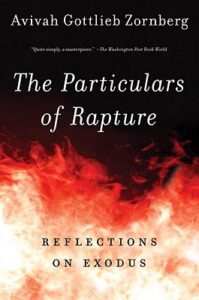
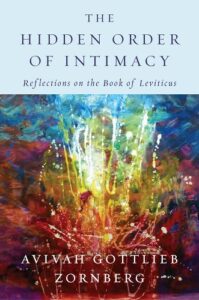
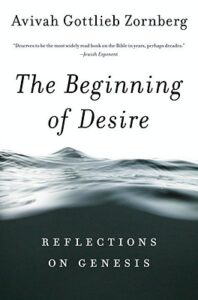
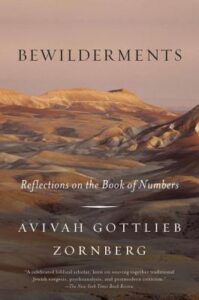




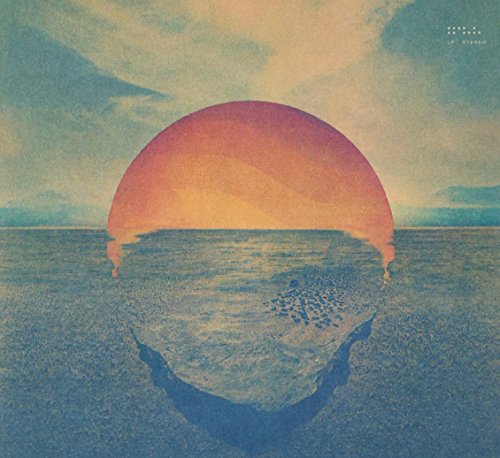
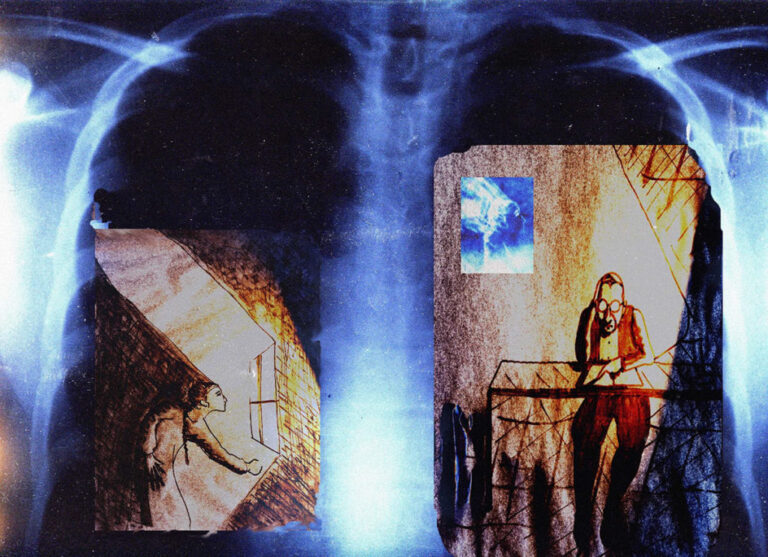
Reflections